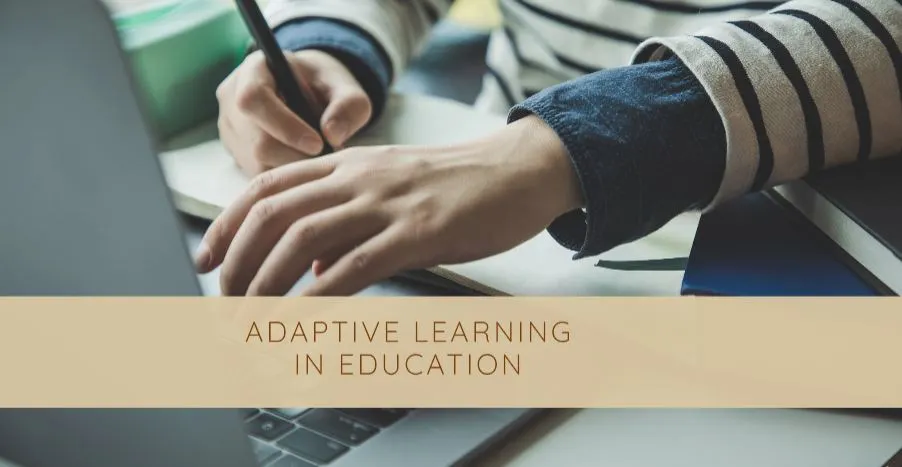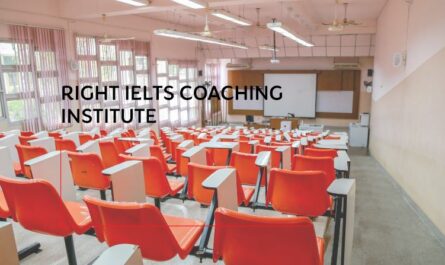In the fast-paced realm of education, where individualized and dynamic learning experiences are paramount, Adaptive Learning emerges as a transformative force. This article explores the profound impact of Adaptive Learning on the educational landscape, shifting from traditional approaches to a personalized journey that caters to the unique needs of each learner. In an era where customization and flexibility are key, Adaptive Learning stands as a beacon, offering an innovative path to academic success.
In the conventional testing paradigm, students often find themselves grappling with assessments that may not accurately reflect their comprehension levels. However, the integration of Adaptive Learning transforms this landscape. This section delves into how Adaptive Learning, much like the sentiment behind take my test for me, envisions a personalized approach to assessments. By dynamically adjusting to individual proficiency, Adaptive Learning ensures that each student faces a tailored evaluation, unlocking a future where tests align closely with their unique learning journeys.
Revolutionizing Education through Adaptive Learning
Adaptive Learning has ushered in a new era of educational methodologies, challenging traditional norms and redefining the learning experience. This paradigm shift aims to revolutionize education by harnessing technology to create adaptive, personalized learning environments. As opposed to the one-size-fits-all model, Adaptive Learning tailors educational content to individual needs, strengths, and weaknesses. The result is a dynamic and engaging educational journey that not only caters to diverse learning styles but also maximizes the potential for academic success. This section delves into how Adaptive Learning is breaking down barriers, transforming classrooms, and paving the way for a more inclusive and effective educational landscape.
The Role of Technology in Personalized Learning
Technology plays a pivotal role in the evolution of personalized learning, particularly through the integration of sophisticated tools and platforms. In the realm of education, technological advancements enable the creation of adaptive systems that can analyze individual learning patterns, preferences, and performance. These systems leverage artificial intelligence and machine learning algorithms to tailor educational content, pacing, and assessments to each student’s unique needs. By providing real-time feedback and adjusting the difficulty of tasks, technology facilitates a more personalized and responsive learning environment. This integration not only enhances engagement but also empowers learners to progress at their own pace, fostering a deeper understanding of the material and, ultimately, promoting academic success. The intersection of technology and personalized learning stands as a testament to the transformative potential of innovation in education.
Real-world Applications and Success Stories
The impact of adaptive learning extends beyond the theoretical realm, finding practical applications in diverse fields and showcasing remarkable success stories. In professional training, adaptive learning platforms have been instrumental in upskilling employees, tailoring content to address specific job requirements, and maximizing individual potential within the workforce. Moreover, in academic settings, adaptive learning has proven effective in addressing learning gaps and enhancing comprehension, leading to improved student outcomes. Success stories abound, from individuals mastering new languages to students excelling in complex subjects. The adaptability and personalized nature of these platforms contribute to tangible, real-world achievements, underscoring the potential of adaptive learning to revolutionize education across various domains.
Adaptive Learning and Assessment Strategies
Adaptive learning goes beyond traditional assessment methods by providing dynamic, personalized evaluation strategies. Through continuous analysis of individual progress and learning patterns, these platforms tailor assessments to match the student’s proficiency level. By adapting the difficulty of questions based on the user’s performance, adaptive learning ensures that assessments are challenging enough to promote growth but not overly discouraging. This approach fosters a supportive learning environment where assessments become opportunities for targeted improvement rather than mere measures of proficiency. The integration of adaptive learning and innovative assessment strategies contributes to a holistic educational experience that aligns closely with individualized learning needs, ultimately enhancing the effectiveness of the educational journey.
Challenges and Future Trends in Adaptive Learning
While adaptive learning holds great promise in revolutionizing education, it is not without its challenges. One primary obstacle is the need for robust technological infrastructure, as adaptive learning heavily relies on sophisticated algorithms and real-time data analysis. Additionally, concerns about data privacy and security pose challenges in the widespread adoption of these systems. As the field evolves, there is a growing emphasis on addressing these issues through continuous research and development. Looking ahead, future trends in adaptive learning include the integration of artificial intelligence for more advanced personalization, gamification elements to enhance engagement, and increased collaboration between educators and technology developers. Overcoming current challenges and staying attuned to emerging trends will play a pivotal role in shaping the trajectory of adaptive learning, ensuring it remains a powerful force in transforming the landscape of education.
Final Thoughts
In conclusion, adaptive learning stands at the forefront of educational innovation, offering a dynamic and personalized approach to meet the diverse needs of learners. As we navigate the evolving landscape of education, the integration of adaptive learning technologies presents an exciting opportunity to enhance engagement, improve learning outcomes, and foster a more inclusive educational environment. Despite the challenges, the potential for revolutionizing how we teach and learn is substantial. By embracing the continuous advancements in technology, addressing concerns, and staying committed to research-driven practices, we pave the way for a future where adaptive learning plays a central role in shaping the educational experiences of students worldwide. The journey towards unlocking the full potential of adaptive learning is ongoing, promising a transformative impact on the way knowledge is acquired and shared in the years to come.




